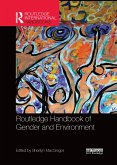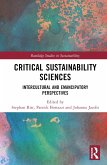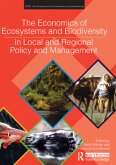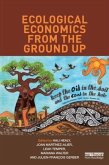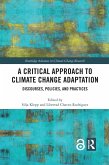Since the 2008 financial crash the expansion of neoliberalism has had an enormous impact on nature-society relations around the world. In response, various environmental movements have emerged opposing the neoliberal restructuring of environmental policies using arguments that often bridge traditional divisions between the environmental and labour agendas.
The Right to Nature explores the differing experiences of a number of environmental-social movements and struggles from the point of view of both activists and academics. This collection attempts to both document the social-ecological impacts of neoliberal attempts to exploit non-human nature in the post-crisis context and to analyse the opposition of emerging environmental movements and their demands for a radically different production of nature based on social needs and environmental justice. It also provides a necessary space for the exchange of ideas and experiences between academics and activists and aims to motivate further academic-activist collaborations around alternative and counter-hegemonic re-thinking of environmental politics.
This book will be of great interest to students, scholars and activists interested in environmental policy, environmental justice, social and environmental movements.
The Right to Nature explores the differing experiences of a number of environmental-social movements and struggles from the point of view of both activists and academics. This collection attempts to both document the social-ecological impacts of neoliberal attempts to exploit non-human nature in the post-crisis context and to analyse the opposition of emerging environmental movements and their demands for a radically different production of nature based on social needs and environmental justice. It also provides a necessary space for the exchange of ideas and experiences between academics and activists and aims to motivate further academic-activist collaborations around alternative and counter-hegemonic re-thinking of environmental politics.
This book will be of great interest to students, scholars and activists interested in environmental policy, environmental justice, social and environmental movements.
"Since the 2008 economic crisis, neo-liberal capitalism has intensified its onslaught on nature through accelerating resource extraction and privatizing the commons of nature. This book demonstrates exquisitely the havoc wrought by these infernal dynamics and charts possible terrains for thought and action that could lead to a more just and equitable society-nature relationship. A must read for all concerned with the dwindling rights of nature." - Erik Swyngedouw, University of Manchester, UK
"This timely book offers an unprecedented synthesis of cutting-edge research and grassroots activism in pursuit of progressive environmentalism. An exemplar of radical praxis, it will be indispensable for scholars in a wide range of fields as well as activists and policymakers seeking greater conceptual clarity in their work." - Robert Fletcher, Wageningen University, The Netherlands
"A much-needed and compelling account of how the alliance between critical scholarship and social struggles can radically reconfigure environmental policies worldwide. This book makes an outstanding contribution to research engaged in understanding, and supporting, alternatives to the neoliberal agenda." - Stefania Barca, Center for Social Studies, University of Coimbra, Portugal
"This timely book offers an unprecedented synthesis of cutting-edge research and grassroots activism in pursuit of progressive environmentalism. An exemplar of radical praxis, it will be indispensable for scholars in a wide range of fields as well as activists and policymakers seeking greater conceptual clarity in their work." - Robert Fletcher, Wageningen University, The Netherlands
"A much-needed and compelling account of how the alliance between critical scholarship and social struggles can radically reconfigure environmental policies worldwide. This book makes an outstanding contribution to research engaged in understanding, and supporting, alternatives to the neoliberal agenda." - Stefania Barca, Center for Social Studies, University of Coimbra, Portugal
"Since the 2008 economic crisis, neo-liberal capitalism has intensified its onslaught on nature through accelerating resource extraction and privatizing the commons of nature. This book demonstrates exquisitely the havoc wrought by these infernal dynamics and charts possible terrains for thought and action that could lead to a more just and equitable society-nature relationship. A must read for all concerned with the dwindling rights of nature." - Erik Swyngedouw, University of Manchester, UK
"This timely book offers an unprecedented synthesis of cutting-edge research and grassroots activism in pursuit of progressive environmentalism. An exemplar of radical praxis, it will be indispensable for scholars in a wide range of fields as well as activists and policymakers seeking greater conceptual clarity in their work." - Robert Fletcher, Wageningen University, The Netherlands
"A much-needed and compelling account of how the alliance between critical scholarship and social struggles can radically reconfigure environmental policies worldwide. This book makes an outstanding contribution to research engaged in understanding, and supporting, alternatives to the neoliberal agenda." - Stefania Barca, Center for Social Studies, University of Coimbra, Portugal
"This timely book offers an unprecedented synthesis of cutting-edge research and grassroots activism in pursuit of progressive environmentalism. An exemplar of radical praxis, it will be indispensable for scholars in a wide range of fields as well as activists and policymakers seeking greater conceptual clarity in their work." - Robert Fletcher, Wageningen University, The Netherlands
"A much-needed and compelling account of how the alliance between critical scholarship and social struggles can radically reconfigure environmental policies worldwide. This book makes an outstanding contribution to research engaged in understanding, and supporting, alternatives to the neoliberal agenda." - Stefania Barca, Center for Social Studies, University of Coimbra, Portugal


